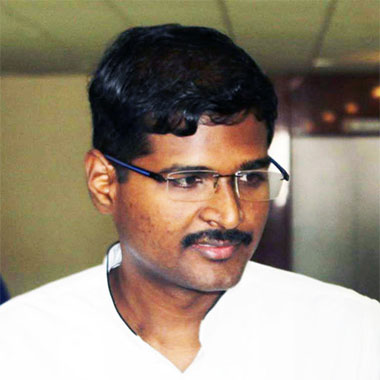
Events
NDMC Talk Series: Invited talk by Dr. Rizwan SA, Scientist - D, ICMR - National Institute of Epidemiology
August 28, 2024
NDMC hosted an invited online talk by Dr. Rizwan SA on Burden of disease modelling under the GBD framework, on the 28th of August, 2024.
Dr. Rizwan Abdulkader is an epidemiologist, currently serving as a scientist at the ICMR-National Institute of Epidemiology in Chennai, India. With an M.D. in Community Medicine from AIIMS, New Delhi, and a Ph.D. in Statistics from Manonmaniam Sundaranar University, he has extensive experience in public health and epidemiology. He has previously served with the INCLEN Trust International, Velammal Medical College, and the Ministry of Health in Saudi Arabia. Dr. Rizwan has authored 143 research articles, contributed to 7 book chapters, and has an h-index of 58. His work focuses on infectious disease epidemiology, global health, and public health surveillance, with notable contributions to studies on stroke risk, tobacco consumption trends, and COVID-19 testing. He is also involved in several ongoing funded research projects, including a model for influenza surveillance, epidemic intelligence platforms, capacity building and framework development for SARI burden estimation and forecasting in India.
Abstract
The GBD initiative seeks to quantify the impact of over 370 diseases and injuries, their sequelae, and 80+ risk factors across 200+ countries. The modelling process is meticulously organized into over 20 specialized teams, each comprising experts in various fields such as data science, epidemiology, and mathematics. The framework emphasizes the critical role of data aggregation, utilizing a vast array of sources including registries, literature, and limited-access data, facilitated by automated tools and AI-driven systematic reviews. Key modelling components discussed include Cause of Death Ensemble Modelling (CODEm) and non-fatal burden estimation techniques like spatio-temporal Gaussian process regression and DisMod meta-regression. The presentation also covers ancillary modelling activities such as risk factor estimation, burden of proof studies, and future health scenario forecasting. The results of these modelling efforts are exemplified through disease-specific analyses, highlighting the GBD framework's capability to inform global health strategies and policymaking.
